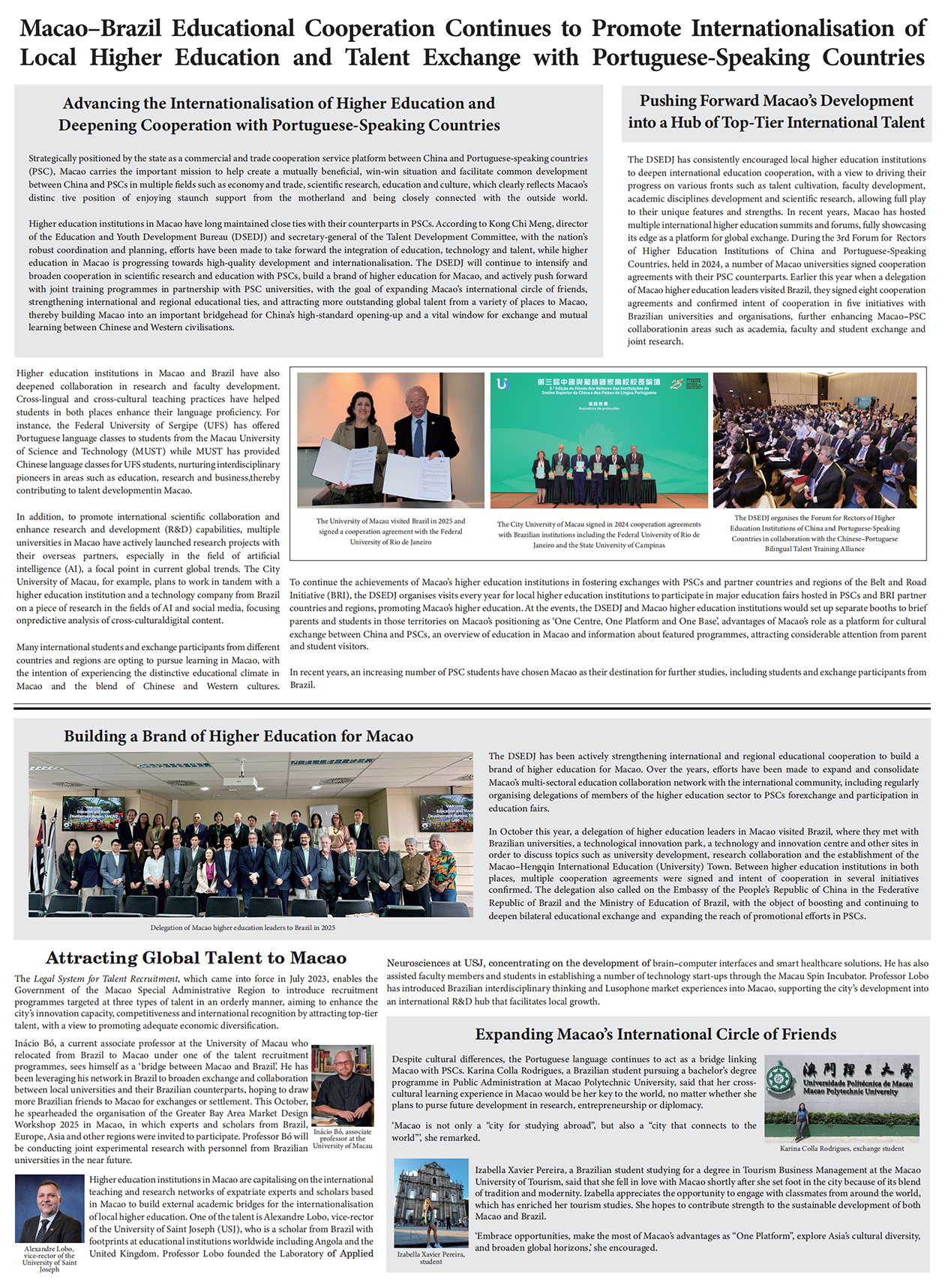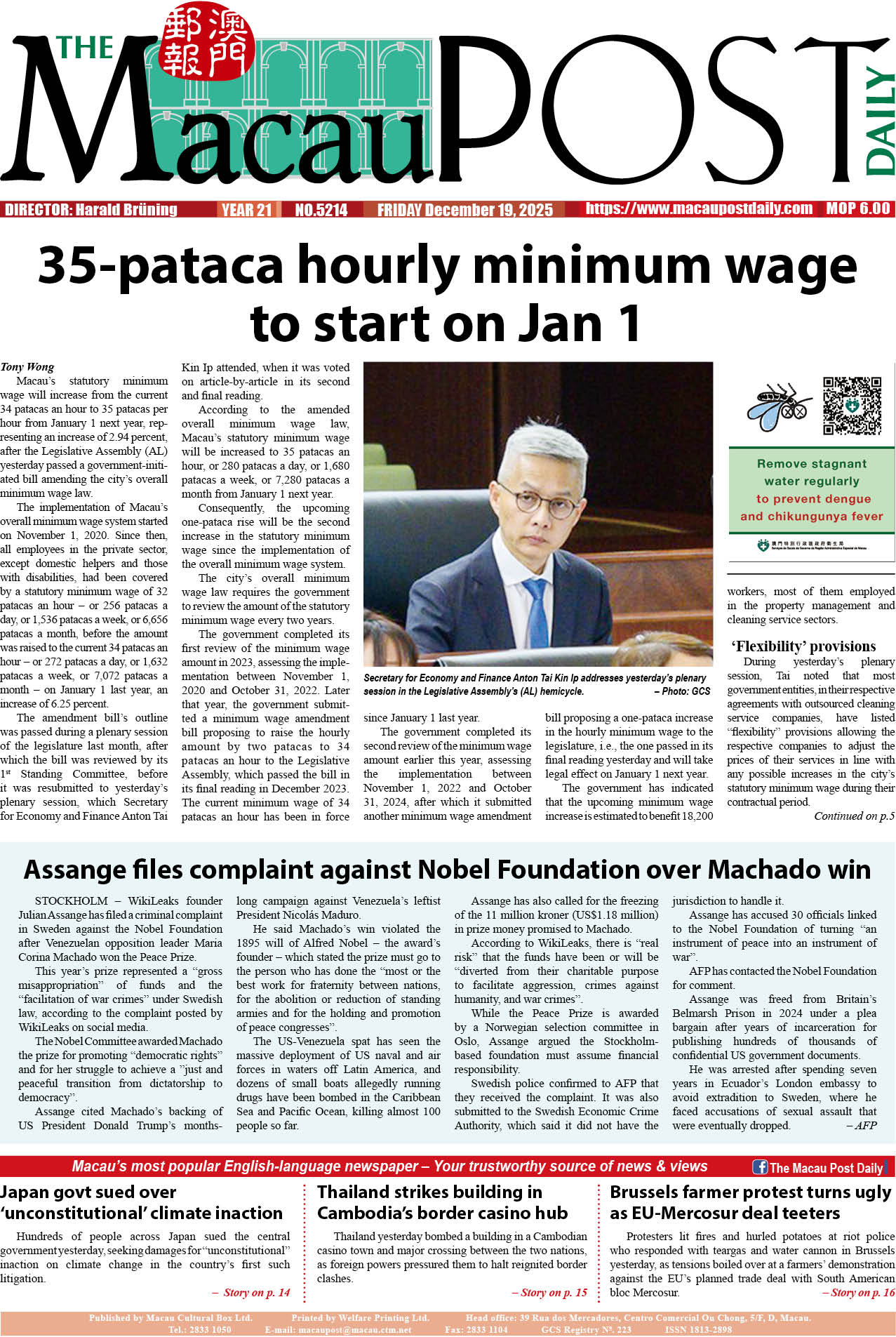The Health Bureau (SSM) received 86 Salmonella infection reports between August 19 and Friday, more than doubling the 41 cases recorded in the same period last year, as well as three foodborne illness outbreaks of Salmonella enteritidis, all resulting from the consumption of contaminated, raw or undercooked eggs and egg products.
According to an SSM statement on Friday, the number of Salmonella infection cases recorded by the bureau has exceeded the alert level, with an average of 12 cases per week recently, including a peak of 16 cases in one week, urging the public to pay close attention to personal, environmental and food hygiene to minimise the risk of coming down with a salmonella infection, while also paying special attention to the storage and preparation processes of foodstuff.
The bureau underlined that food, raw or undercooked eggs and egg products in particular, should be thoroughly cooked before consumption, while also ensuring that raw and cooked food items are always handled separately.
The statement pointed out that Salmonella infections are enteritis caused by non-typhoidal Salmonella species, mainly Salmonella enteritidis and Salmonella typhimurium, with more than 2,000 serotypes of Salmonella having been identified. Salmonella infections can occur throughout the year, but are more common between July and October, with more severe symptoms occurring most frequently in infants and children aged under five, senior citizens and the immunocompromised persons.
The incubation period of Salmonella infection ranges from six to 72 hours, usually 12 to 36 hours, with the infectious period usually ranging from a few days to a few weeks, during which patients may suffer symptoms of acute gastroenteritis, including nausea, vomiting, diarrhoea, fever and abdominal cramps, lasting four to seven days.









